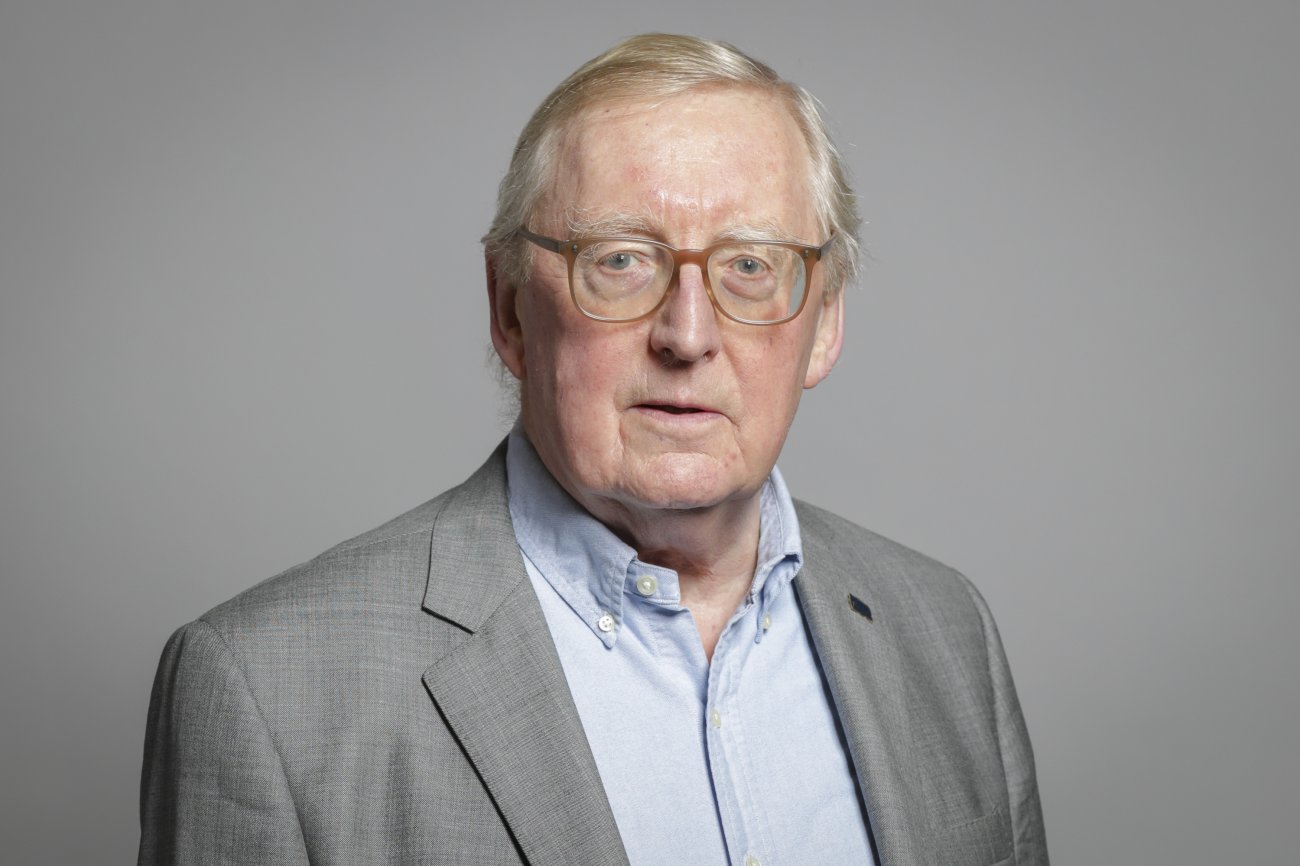Peer calls for more secular democracy in RE debate
Posted: Fri, 19th Jan 2024
Lord Warner challenges prayers in parliament and schools, bishops' bench, and faith schools.
A member of the House of Lords has criticised the lack of separation of religion and state in parliament and education during a debate.
Crossbench peer Norman Warner (pictured) called for an end to prayers imposed in parliament and schools during a House of Lords debate yesterday on religious education (RE) in England.
The debate followed a question from crossbench peer and retired bishop Richard Harries, who asked what steps the government is taking to improve the quality of RE in schools.
Many schools do not teach RE despite being legal obliged to do so, and there is a lack of qualified RE teachers.
Lord Warner: Church and state "seem unwilling to recognise" reality of nonreligious UK
In response to Lord Harries' concerns that Ofsted found RE of "poor quality" and "not fit for purpose" in "too many" schools, Lord Warner told peers that the problems with RE are "more fundamental", because the UK has become significantly less religious.
He highlighted the British Social Attitudes survey's findings that over half the population have no religion, and only 0.7% of 18 to 24 year olds are Anglicans. He said the 2021 census "points in the same secular direction".
He said the established Church of England and the state "seem unwilling to recognise this new reality", highlighting the imposition of parliamentary prayers and seats given to 26 CofE bishops as of right in the House of Lords.
He said the shift towards irreligiosity "calls into question" the state's funding of faith schools. He added there is "no justification" for compulsory daily acts of Christian collective worship in nonreligious state schools.
He concluded: "We could and should abolish compulsory acts of Christian worship in schools, and we should move to teach an independently devised and more broadly based national education curriculum, as others have suggested, on faith and non-faith beliefs.
"This House might like to set an example by changing some of its own religious practices."
Lord Parekh: "it is not clear why we want to teach religious education"
Several peers including Lord Harries criticised the "postcode lottery" in RE provision, and called for the RE syllabus to be nationally determined.
Unlike any other compulsory subject, RE is determined at a local level in England. In each local authority the agreed syllabus for RE is determined by committees representing the Church of England and other religion and belief groups, as well as the local authority and teacher's groups. This puts RE under significant control from religious interest groups.
Bishop of Durham Paul Butler, who sits on the bishops' bench, urged the government to ensure RE is considered "an essential part of education".
But Labour peer Bhikhu Parekh said "it is not clear why we want to teach religious education", adding: "I do not think that many people who have insisted on this have really given it thought".
Crossbencher Molly Meacher called for RE to be made "fully inclusive of non-religious worldviews" and for the subject to be renamed "religion and worldviews". She highlighted last year's landmark ruling from the High Court that it is unlawful for local advisory committees on RE to exclude humanists.
Baroness Fox: "who would be an RE teacher?"
Independent peer Claire Fox highlighted the culture of fear which has grown around religion in schools, saying: "given that religion and politics have got very messy, who would be an RE teacher dealing with such fraught difficulties?"
She referred to the legal action taken against Michaela Community School, which decided to restrict prayer rituals after they led to division and bullying. The school subsequently faced death threats and bomb scares.
She also mentioned the Batley Grammar School teacher forced into hiding after showing a picture of Muhammad in an RE class, and the Parisian teacher Samuel Paty who was murdered in 2020 after showing his class an image of Muhammad.
Baroness Barran: Schools not teaching RE "acting unlawfully"
Responding on behalf of the government, Baroness Diana Barran said RE "can develop children's knowledge of British values and traditions, help them better understand those of other countries, and refine their ability to construct well-informed, balanced and structured arguments".
But she added that government policy "remains that curricula should be determined locally".
She warned that schools not teaching RE are "acting unlawfully or are in breach of their academy funding agreements".
She added: "If there are concerns that a school is not teaching RE, they can be raised via the school's complaints procedure.
"If they are not resolved, they can be escalated to the department".
The National Secular Society has repeatedly called on the government to replace RE with a more appropriate and relevant subject, rather than punish schools which choose not to teach it.
NSS: We need to release parliament and education from religious imposition
NSS head of campaigns Megan Manson said: "It is disappointing but not wholly surprising that the government has again ignored calls for RE to be reformed into a more suitable subject for the 21st century.
"At the very least, it should be a nationally determined subject, free from the control of religious interest groups, which is inclusive of nonreligious worldviews.
"It would be preferable to replace it with a subject which can teach about worldviews, values and critical thinking skills more effectively. We don't need a dedicated RE subject to do this.
"But as Lord Warner says, there are more fundamental forces at play. We ultimately need a secular state, where both parliament and our education system are released from religious imposition.
"That means no more prayers in parliament and schools, no more bishops' bench, and no more faith schools."
Rethink RE
We need a new subject to teach children about worldviews, citizenship and ethics. Join our campaign











